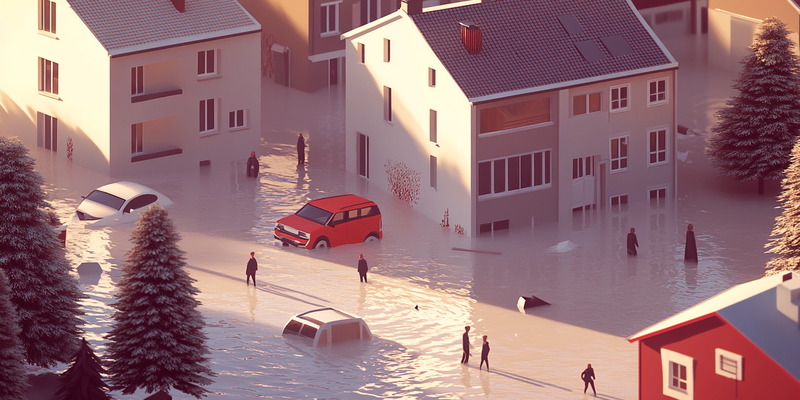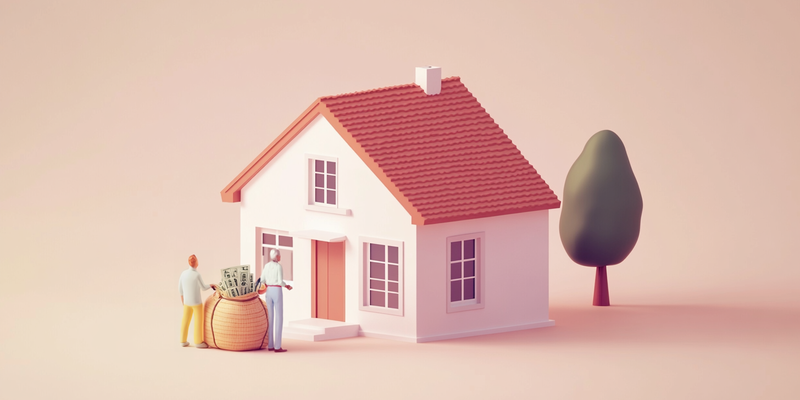
If you are not redirected within 30 seconds, please click here to continue.
Samedi: 10h – 16h HAE

If you are not redirected within 30 seconds, please click here to continue.
If you are not redirected within 30 seconds, please click here to continue.
Frustrated by Rising Home Insurance Premiums? Blame Climate Change

Table of Contents
- Ontario homeowners have seen their insurance premiums rise by 63% since 2011 while Alberta homeowners have experienced a 140% jump over the same timeline.
- Climate change is causing extreme weather events to increase in both scale and frequency, with insurance giants now warning the trend could make home insurance unaffordable.
- Basic maintenance and home care can make a major difference in protecting your property from the accelerating effects of human-induced climate change.
To those who argue the costs of taking stronger action against human-caused climate change are too expensive, consider this: the costs of inaction have been rising for Canadian homeowners every year.
Amid what is arguably the largest and most widespread real estate bubble in Canadian history, new analysis from RATESDOTCA shows the price of home insurance has also been growing at multiples the rate of inflation. According to the Bank of Canada, inflation has totaled less than 17% since 2011.
Calculating what climate change is adding to your home insurance bill
What that inflation number means is if you paid $100 per month for your home insurance in 2011 and your premiums have been increasing in line with inflation, you would be paying roughly $117 per month this year. Instead, the average Ontario homeowner who was paying $100 per month in 2011 is now paying somewhere in the neighbourhood of $163 per month, according to RATESDOTCA data.
In Alberta, the disparity is even more dramatic: a $100-per-month home insurance policy in 2011 would cost roughly $240 today. That is based on analysis of RATESDOTCA data showing average home insurance premiums in Ontario and Alberta increased 63% and 140% respectively between 2011 and April 2021*.
The total number of homes in Canada has been increasing steadily over the past decade, meaning insurance companies need to increase rates to some extent to account for the addition number of homes they need to pay for repairing or rebuilding each year. However, housing supply has never grown at anywhere close to the rate of inflation – that would require hundreds of thousands of new homes to be constructed every year – so that cannot be the explanation either.
Now consider the total value of insurance claims Canadians have made each year for personal property that has either been damaged or destroyed. According to data from the Insurance Bureau of Canada, total net claims have nearly tripled from roughly $2.3 billion in 1996 to nearly $7.2-billion as of 2019.
For a more apples-to-apples comparison, consider the most recent 10-year period from 2009, when personal property claims across Canada totaled $5.1 billion. That figure grew by more than $2 billion or 44% over the following decade or approximately three times faster than inflation.
That can only be the result of an increasing number of homes across Canada suffering increasingly expensive damage and/or destruction every year. As the increasing effects of climate change mean property-damaging extreme weather events will become more common and more powerful, that would seem to be the most likely explanation for rapidly rising Canadian home insurance costs.

Homes in high-risk regions may become uninsurable
Globally, the economic costs of natural disasters have exceeded the 30-year average for seven of the past 10 years, according to the 2020 annual report of Australia’s QBE Insurance Group.
QBE’s report also said the physical impacts of climate change “will result in our customers seeking increased insurance for the protection of their assets and the services they provide. This may cause insurance premiums to become unaffordable, especially for customers in areas more exposed to weather-related events, potentially resulting in a loss of revenue.”
Eventually, access to adequate insurance coverage is expected to become more and more of a social issue. As Ernst Rauch, chief climatologist for Munich Re, recently told The Guardian: “If the risk from wildfires, flooding, storms or hail is increasing then the only sustainable option we have is to adjust our risk prices accordingly.”
“In the long run, that might become a social issue,” Mr. Rauch said. “Affordability is so critical because some people on low and average incomes in some regions will no longer be able to buy insurance.”
How you can better protect your home from climate change
Regardless of how often extreme weather occurs, there are simple ways you can help your property survive. The more homeowners can follow the tips below, the less claims insurance companies will have to pay and ultimately, your future premiums should be lower as a result.
- Consider installing a back water valve/ sump pump in your basement (note: telling your provider about this could result in a discount)
- Installing smart water detectors in your home to instantly inform you when water seeps into places it shouldn’t not only helps safeguard your home from flood damage, but could result in a discount from your insurance provider
- Regularly clean your gutter/ pipes
- Adjust downspouts away from your home and onto the street
- Clearing just five feet of vegetation around your house can halve the risk of your home being destroyed by a wildfire
- Use impact-resistant materials on your roof, especially if you live in a hail zone
- Coniferous trees are more flammable than deciduous trees so avoid planting the former whenever possible
- Prune weak or dead tree branches to reduce the chances of debris damage to your home from harsh winds
- Get water flooding coverage included in your policy (most providers require this to be purchased separately)
*Home insurance prices are based on RATESDOTCA data for policy transfers from 2011 through early 2021.
Get money-saving tips in your inbox.
Stay on top of personal finance tips from our money experts!









